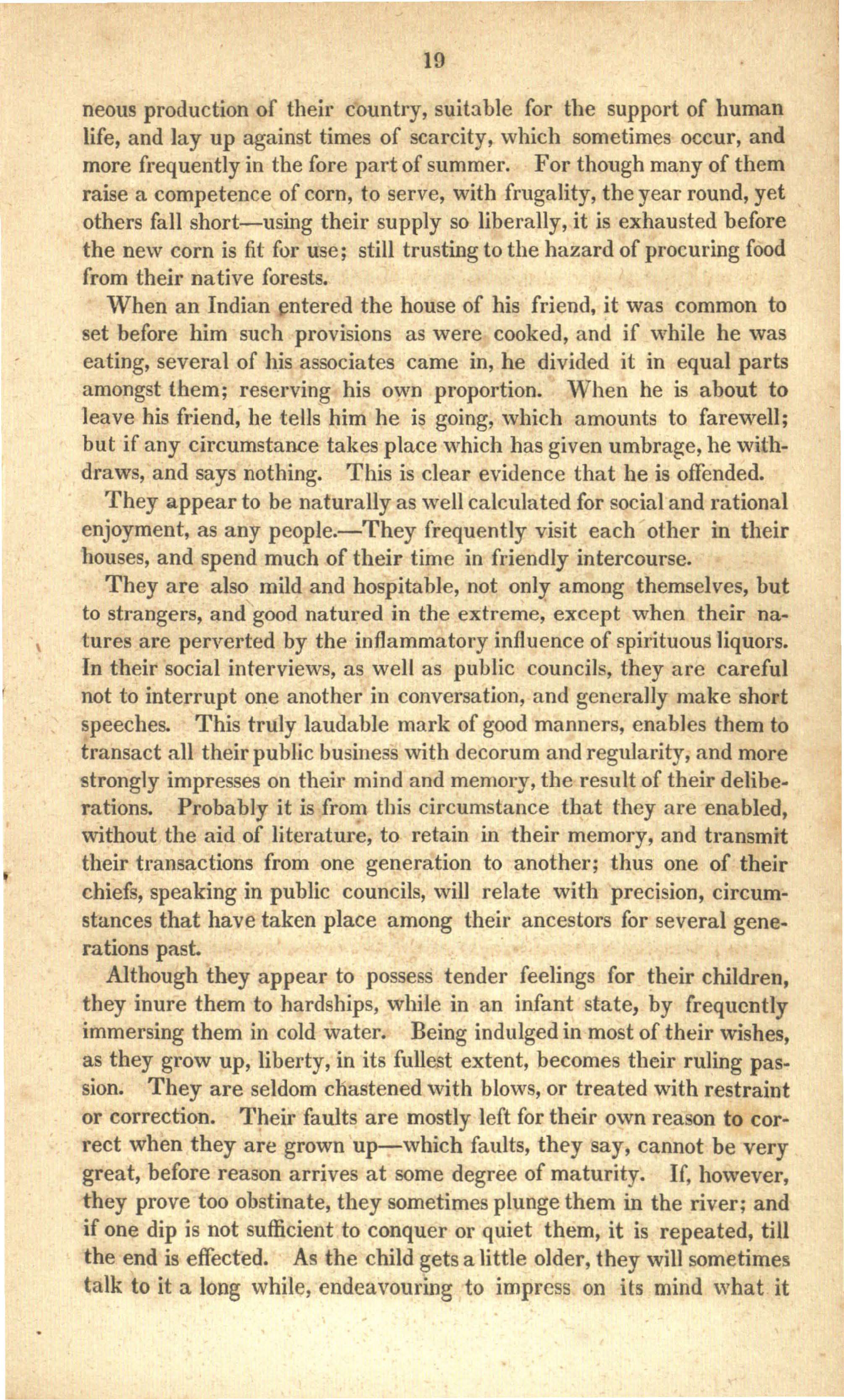neous production of their country,
suitable for the support of human
life, and lay up against times of
scarcity, which sometimes occur, and
more frequently in the fore part of
summer. For though many of them
raise a competence of corn, to serve, with
frugality, the year round, yet
others fall short - using their supply so
liberally, it is exhausted before
the new corn is fit for use; still
trusting to the hazard of procuring food
from their native forests.
When an Indian entered the house of his friend, it was common to
set before
him such provisions as were cooked, and if while he was
eating, several of
his associates came in, he divided it in equal parts
amongst them;
reserving his own proportion. When he is about to
leave his friend, he
tells him he is going, which amounts to farewell;
but if any circumstance
takes place which has given umbrage, he with-
draws, and says nothing. This
is clear evidence that he is offended.
They appear to be naturally as well calculated for social and rational
enjoyment, as any people. --They frequently visit each other in their
houses, and spend much of their time in friendly intercourse.
They are also mild and hospitable, not only among themselves, but
to
strangers, and good natured in the extreme, except when their na-
ture are
perverted by the inflammatory influence of spirituous liquors.
In their
social interviews, as well as public council, they are careful
not to
interrupt one another in conversation, and generally make short
speeches.
This truly laudable mark of good manners, enables them to
transact all
their public business with decorum and regularity, and more
strongly
impresses on their mind and memory, the result of their delibe-
rations.
Probably it is from this circumstance that they are enabled,
without the
aid of literature, to retain in their memory, and transmit
their
transactions from one generation to another; thus one of their
chiefs,
speaking in public council , will relate with precision, circum-
stances
that have taken place among their ancestors for several gene-
rations
past.
Although they appear to possess tender feelings for their children,
they
inure them to hardships, while in an infant state, by frequently
immersing
them in cold water. Being indulged in most of their wishes,
as they grow
up, liberty, in its fullest extent, becomes their ruling pas-
sion. They are
seldom chastened with blows, or treated with restraint
or correction. Their
faults are mostly left for their own reason to cor-
rect when they are grown
up - which faults, they say, cannot be very
great, before reason arrives at
some degree of maturity. If, however,
they prove too obstinate, they
sometimes plunge them in the river; and
if one dip is not sufficient to
conquer or quiet them, it is repeated, till
the end is effected. As the
child gets a little older, they will sometimes
talk to it a long while,
endeavouring to impress on its mind what it

